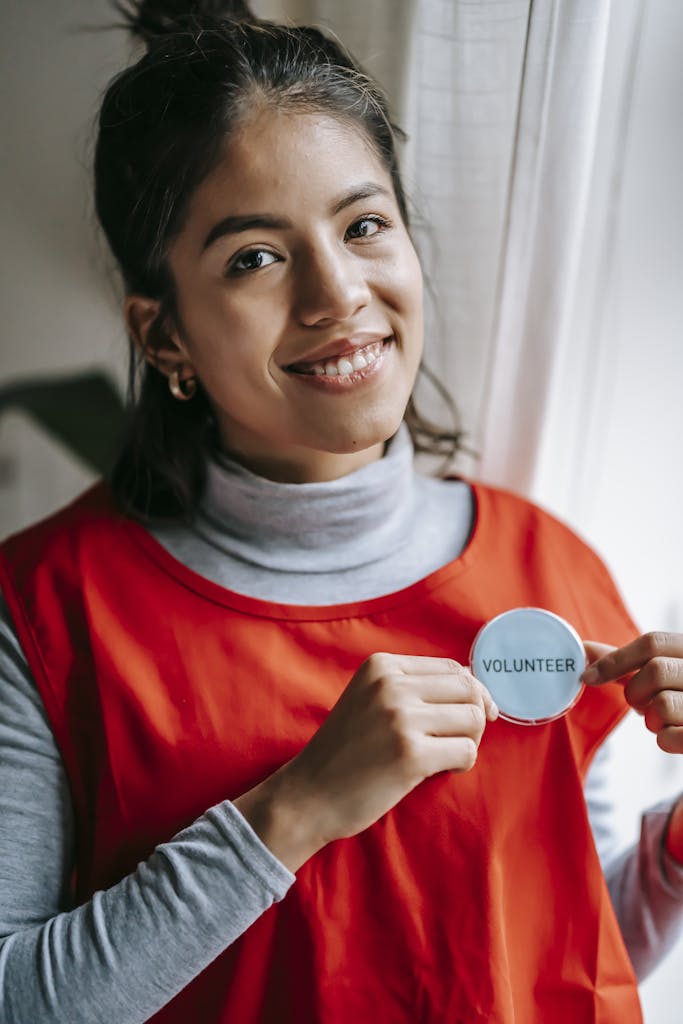
You’re not broken if you feel lonely – I can tell you that much from working with countless people who’ve sat in that exact same spot. Loneliness hits differently than sadness or anger because it tricks you into believing you’re the only one experiencing it, when the truth is millions of people wake up feeling disconnected every single day. Here’s what I’ve learned about turning that isolation into genuine connection, and it starts with one simple shift in how you approach the problem.
Acknowledge and Accept Your Feelings Without Judgment
When loneliness hits you like a wave, your first instinct might be to push those uncomfortable feelings away, but I can tell you from experience that this approach backfires every time. Instead, you need to sit with that loneliness, acknowledge it’s there, and resist the urge to judge yourself for feeling this way.
I’ve seen powerful people crumble because they couldn’t accept their own humanity. You’re not weak for feeling lonely – you’re human. When you tell yourself “I shouldn’t feel this way” or “successful people don’t get lonely,” you’re adding shame on top of an already difficult emotion.
The moment you stop fighting your feelings and simply say “I’m lonely right now, and that’s okay,” you reclaim your power. Remember that your current mindset and present choices shape your future far more than dwelling on past experiences or traumas that may have contributed to your feelings of isolation.
Reach Out to Existing Friends and Family Members

Now that you’ve accepted your loneliness, it’s time to reach out to the people who already care about you, and I can tell you that this single step has pulled more people out of dark places than any other strategy I know. Start with one text message to someone who matters. Don’t overthink it – just write “Hey, thinking of you” or “Want to grab coffee this week?” I’ve never seen this approach fail when done consistently.
Your existing relationships are your greatest asset right now. That college friend, your sister, the coworker you actually like – they’re waiting to hear from you. Most people assume others are too busy, but I can tell you that genuine connection is what everyone craves. Make the first move, be vulnerable, and watch loneliness lose its grip. Remember that quality relationships open doors that quantity never could, so focus your energy on deepening these meaningful connections rather than seeking new ones.
Join Communities Based on Your Interests and Hobbies
While reaching out to existing connections works wonders, you’ll also want to expand your social circle through shared interests, and I can tell you that hobby-based communities are where some of the strongest friendships form. When you join a photography club, hiking group, or book club, you’re automatically connecting with people who share your passions. I’ve never seen anything build bonds faster than working toward common goals together.
Search for local meetups, community center classes, or online groups that meet in person. Volunteer organizations work exceptionally well because you’re contributing to something meaningful while meeting like-minded people. The key is consistency – show up regularly, engage genuinely, and don’t expect instant results. These communities give you natural conversation starters and shared experiences that make forming connections effortless.
Consider exploring creative activities like watercolor painting classes or pottery workshops, as these hands-on hobbies naturally foster conversation and connection while you work on your projects together.
Volunteer for Causes You Care About

Volunteering stands out as one of the most powerful ways to combat loneliness because it connects you with others while giving your life deeper meaning. I can tell you from experience, there’s something transformative about working alongside people who share your values and passion for making a difference.
When you volunteer at an animal shelter, food bank, or environmental organization, you’re not just helping others – you’re building genuine relationships with fellow volunteers and the people you serve. I’ve never seen anyone remain isolated when they’re consistently showing up for causes they believe in.
The key is choosing something that truly matters to you. Don’t volunteer randomly; pick causes that align with your values and interests, where you’ll naturally connect with like-minded people. Consider combining your volunteer work with creative hobbies like photography to document your impact, or bring handmade items from activities like knitting or baking to share with fellow volunteers and those you serve.
Practice Self-Compassion and Develop a Stronger Relationship With Yourself
Before you can truly connect with others, you need to build a solid foundation with the most important person in your life – yourself. I can tell you from experience, when you’re harsh and critical toward yourself, loneliness becomes suffocating. You’ll seek validation from others to fill that void, which creates desperation, not connection.
Start treating yourself like you’d treat a respected friend. When negative self-talk kicks in, pause and ask, “Would I speak to someone I care about this way?” I’ve never seen someone attract genuine relationships while constantly beating themselves up internally.
Practice daily self-acknowledgment. Celebrate small wins, forgive your mistakes quickly, set boundaries that protect your energy. When you become your own ally instead of your harshest critic, you’ll radiate the confidence that draws people toward you. Remember that small steps in developing self-compassion can lead to significant changes in how you connect with both yourself and others.
Create Regular Social Rituals and Routines

Once you’ve strengthened your relationship with yourself, it’s time to build consistent opportunities for connection with others. I can tell you that loneliness feeds on unpredictability, so you need structured social touchpoints that happen regularly. Schedule weekly coffee dates with friends, join a recurring fitness class, or commit to monthly dinner parties at your place. I’ve never seen someone overcome chronic loneliness without establishing these reliable connection points.
The key is making these rituals non-negotiable. Don’t wait for invitations or rely on others to initiate contact. You control the schedule. Start a book club, organize hiking meetups, or host game nights every other Friday. These predictable social rhythms create anticipation and give you something to look forward to while building deeper relationships through repeated interaction. Consider hosting a potluck dinner where everyone brings a dish to share, creating a relaxed environment that encourages conversation and connection.
Limit Social Media Use and Focus on In-Person Connections
While social media promises connection, it’s actually making your loneliness worse. You’re scrolling through highlight reels, comparing your real life to curated fantasies, and I can tell you that’s a recipe for isolation. Every minute you spend staring at your phone is time stolen from building genuine relationships.
Your loneliness will dissolve when you prioritize authentic human contact over digital validation. The platforms deliberately use algorithm manipulation to trigger your insecurities and keep you scrolling, turning your emotional vulnerabilities into profit.
- Set strict daily limits – Use app timers to cap social media at 30 minutes maximum
- Replace scrolling with calling – When you feel the urge to check Instagram, call a friend instead
- Create phone-free zones – Make your bedroom and dining table sacred spaces for real connection
- Schedule weekly face-to-face meetings – Coffee dates, walks, anything that puts you physically present with others
Take a Class or Learn a New Skill
Building real connections means stepping outside your comfort zone, and I’ve found that learning something new creates the perfect opportunity to meet like-minded people. When you join a pottery class, cooking workshop, or language course, you’re automatically surrounded by others who share your curiosity and drive for growth.
I can tell you that these environments break down social barriers naturally. You’re all beginners together, fumbling through the same challenges, which creates instant common ground. The shared struggle of mastering new skills bonds people quickly.
Choose something that genuinely interests you, not just what seems easy. Photography clubs, martial arts classes, coding bootcamps—they all work. The key is consistency. Show up regularly, engage with classmates, and you’ll build meaningful relationships while developing valuable abilities that enhance your personal power.
Creative activities like pottery are particularly effective because they require complete presence and act as a natural digital detox, forcing you to be fully engaged with both the craft and the people around you.
Adopt a Pet or Spend Time With Animals

Since animals offer unconditional love without judgment, they’re one of the most powerful antidotes to loneliness I’ve encountered. When you’re feeling isolated, pets provide immediate companionship that fills the emotional void.
I can tell you from experience, animals transform your daily routine and give you purpose. Here’s how they combat loneliness:
- They create structure – feeding, walking, and caring for them establishes meaningful daily rituals
- They spark conversations – walking a dog or visiting pet parks naturally connects you with other animal lovers
- They provide physical comfort – petting releases oxytocin, reducing stress hormones that amplify loneliness
- They offer unwavering loyalty – unlike humans, pets won’t abandon you during difficult times
If adoption isn’t possible, volunteer at shelters or visit friends’ pets regularly. For college students dealing with loneliness, caring for animals can even become a rewarding business opportunity through campus photography services for pet portraits or other pet-related ventures.
Practice Mindfulness and Present-Moment Awareness
Loneliness often stems from your mind’s tendency to replay past regrets or spiral into future anxieties, pulling you away from the present moment where connection and peace actually exist. I can tell you that mindfulness isn’t some mystical practice—it’s a powerful tool that brings you back to now, where your real strength lives.
Start with five-minute breathing sessions. Focus on each inhale, each exhale. When your mind wanders to that embarrassing conversation from last week or tomorrow’s uncertainties, gently redirect it back to your breath. I’ve never seen anyone regret developing this skill.
Try mindful walking, eating, or even washing dishes. Notice textures, sounds, sensations. This present-moment awareness dissolves loneliness because you’re fully engaged with life as it’s actually happening, not the stories your mind creates.
Consider practicing Zazen meditation by sitting upright and counting your breaths from 1 to 10, starting with just three minutes daily to build a foundation of present-moment awareness that naturally reduces the mental chatter that feeds loneliness.
Seek Professional Support When Needed
Sometimes you need to call in the professionals, and there’s absolutely nothing wrong with that—it’s actually one of the smartest moves you can make. I can tell you from experience that recognizing when loneliness becomes overwhelming takes real strength, not weakness. Mental health professionals have tools and strategies that can transform how you connect with others and yourself.
Recognizing when loneliness becomes overwhelming takes real strength—seeking professional help is one of the smartest moves you can make.
Consider seeking professional help when:
- Your loneliness feels crushing and unmanageable despite trying multiple self-help approaches
- You’re avoiding social situations completely because the fear of rejection paralyzes you
- Sleep, appetite, or daily functioning suffers from persistent isolation and sadness
- Thoughts of self-harm emerge as loneliness deepens into dangerous territory
I’ve never seen someone regret getting proper support when they needed it most.
Be Patient With the Process of Building New Relationships
Most people expect friendships to bloom overnight, but I can tell you that real connections take months, not days, to develop into something meaningful. You can’t force authentic relationships, and trying to rush the process will backfire every time. I’ve watched countless people give up after two weeks because they didn’t see immediate results.
Give new relationships at least three months to develop naturally before making judgments.
Here’s what works: show up consistently, be genuinely interested in others, and don’t take things personally when someone doesn’t respond right away. People are busy, cautious, and dealing with their own issues. I’ve never seen a strong friendship that didn’t require patience and multiple interactions before it clicked.
Conclusion
Recall, you don’t have to face loneliness alone. I can tell you from experience that taking even small steps makes a real difference. Start with acknowledging your feelings, then reach out to one person today. Join a community, volunteer, or simply practice self-compassion. The connections you’re seeking are possible, but you’ve got to take that first step. Be patient with yourself—meaningful relationships take time to construct.




Leave a Reply